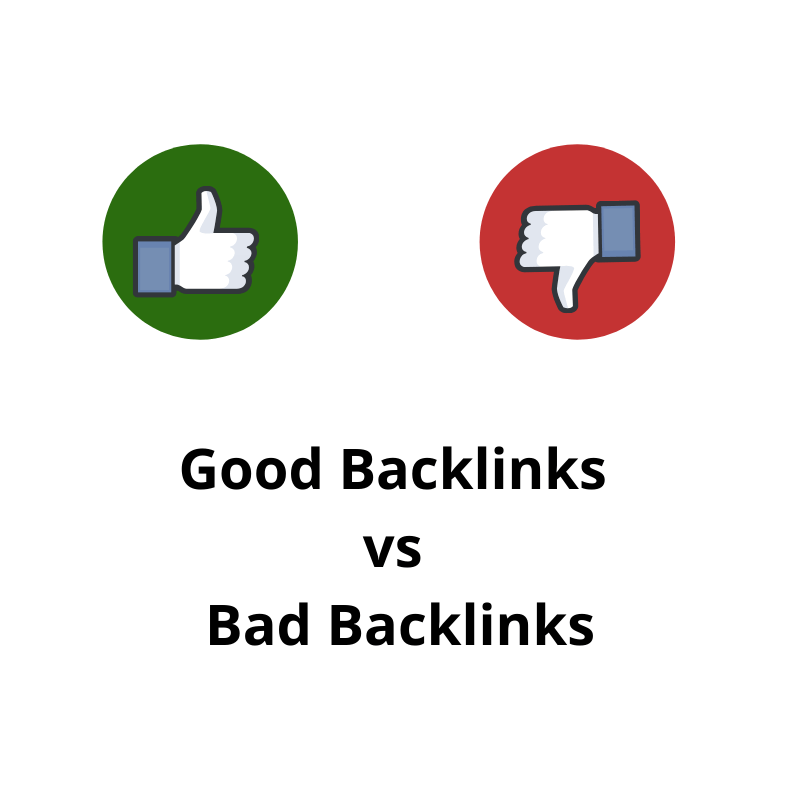“The objective is not to make your links appear natural; the objective is to build natural links.”
They say that backlinks are the backbone of SEO, I say quality backlinks are the backbone of SEO.
While backlinks are a great option to make your website or business popular, only good quality backlinks can prove fruitful for you, or say, your business.
There’s always been a buzz about good and bad backlinks. And yes, bad backlinks do exist.
Want to know more? Well, you all know about building quality links. So, in this article, I will focus more on the bad backlinks, how to find such links and tips to weed this out.
Let us start with the defining good links and bad links:
What are Good Backlinks?
Link building is similar to building your business network for achieving popularity – you associate with top brands in your industry and get widespread recognition. Similarly, quality backlinks are those that come from relevant authoritative domains in your niche.
In other words, if the site linking to your website has a high Domain Authority with similar content, your backlink is said to be good as per the norms of SEO. Good backlinks play a crucial role in earning your website top ranks in the search queries.
However, a backlink should possess certain qualities to be considered as “Good”.
Traits of a Quality Backlink
- A good backlink should be relevant enough – in terms of the general them of the linking domain, relevancy of the links that hit the domain, and the content itself.
- Backlinks acquired from authoritative websites are said to be good.
- Quality Backlinks come from websites that are “Real” and have real traffic.
- Good Backlinks are created from sites of high standards that don’t belong to “scammy” industries.
- Good Links are built using the right (white-hat) SEO strategies.
What are Bad Backlinks?
While having maximum backlinks on your website is rewarding, not all of them are perfect and can have a negative effect on your business site.
Bad backlinks are the ones that come from either unauthorized domains or illicit techniques. Bad backlinks, often referred to as unnatural links are an indication that your site might lack quality or interesting content to get proper backlinks on its own.
While it is true that bad links can get you short-term wins, you’ll soon end up in trouble. After the release of the Google Penguin penalty, Google hates spammy links and content. Hence, having bad backlinks can backfire in the end.
Traits of a Bad Backlink
- Backlinks that are obtained from sites developed solely for SEO links.
- Backlinks built with over-optimized anchor text.
- Backlinks that are produced from the comments of websites that are irrelevant to your niche.
- Spammy links that come from duplicate content.
How to Find the Bad Backlinks?
To protect your website from Google Penguin Penalty, you must take measures to identify if there are any unnatural backlinks on your website.
And the options are simple:
When you get a backlink for your website, ask yourself, “Would I click on this link If I were a visitor to this page?”
Honest marketers will be able to spot bad links easily with this tip.
In fact, Google also uses the same technique to spot spammy backlinks. It approves the links that are the most clicked and visited and consider this as “quality” links. Google decides by evaluating the percentage of people that visit a page and actually click on the backlink.
Other Resources:
Although there are several resources out there to determine the spammy links, the most common tool that is both easy to use and free is the Google Webmaster Tool.
The tool allows you to view a list of websites that link to your own. Usually, quality links are mostly from websites like social media, Yelp, or Better Business Bureau, and help your SEO.
Links coming from sources other than those mentioned are likely to be untrusted and might be harming your SEO.
What more:
When it comes to finding the spammy backlinks, you should be asking several questions to yourself:
- Is the website trusted or of low quality with hundreds of links?
- Does the website have an “about us” page? Generally, untrusted or scammy websites do not post any information about their website with the intention to hide certain things.
- Will this link benefit your business? If your answer is yes, then keep it!
- On the contrary, get rid of the link if you don’t want to be associated with the source your link is coming from.
How to Weed Out Bad Backlinks?
Once you have the list of spammy backlinks, it’s time for you to work on their rival!
Below I’ve listed a number of ways to disable these links so they won’t affect your Google rankings:
- Find the contact details of the owner of the website and ask them to eliminate the link directly. This is the easiest way to get rid of bad backlinks.
- Find out the low-quality pages on your site that are linked to spammy links instead of the links (404/410). Don’t forget to disavow the bad links.
- If you have too many unnatural links associated with your site, simply disavow the links. This is a way to inform Google that these links are not to be considered when assessing the website. Visit Disavow Tool to disavow any spammy links.
Benefits of Quality Backlinks
At last, let us discuss the benefits of having quality backlinks:
- Better Organic Ranking – Backlinks are the simplest way to get high ranking in search engines. Getting organic links in good numbers from reputed sites will automatically improve your search engine rankings.
- Faster Indexing – When you have got quality backlinks, it helps Google and other search engines to discover your website and crawl it effectively. This is particularly beneficial for newly built websites that are struggling to get indexed.
- Quality Traffic – Backlinks bring quality traffic, which is targeted and has a low bounce rate. Naturally, people like reading valuable and popular content.
Pro Tips for Building Links Organically
- Write informative and unique articles.
- Create linkable assets like infographics or educational content.
- Submit to only hyperlocal and niche web directories.
- Do not opt for paid backlinks often else be prepared to get penalized by the Penguin.
If you still find it difficult to distinguish between good and bad links, write to SEO Discovery today! We are here to help you.



Add a Comment